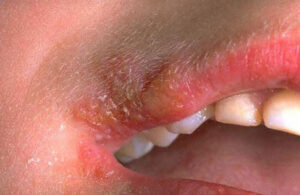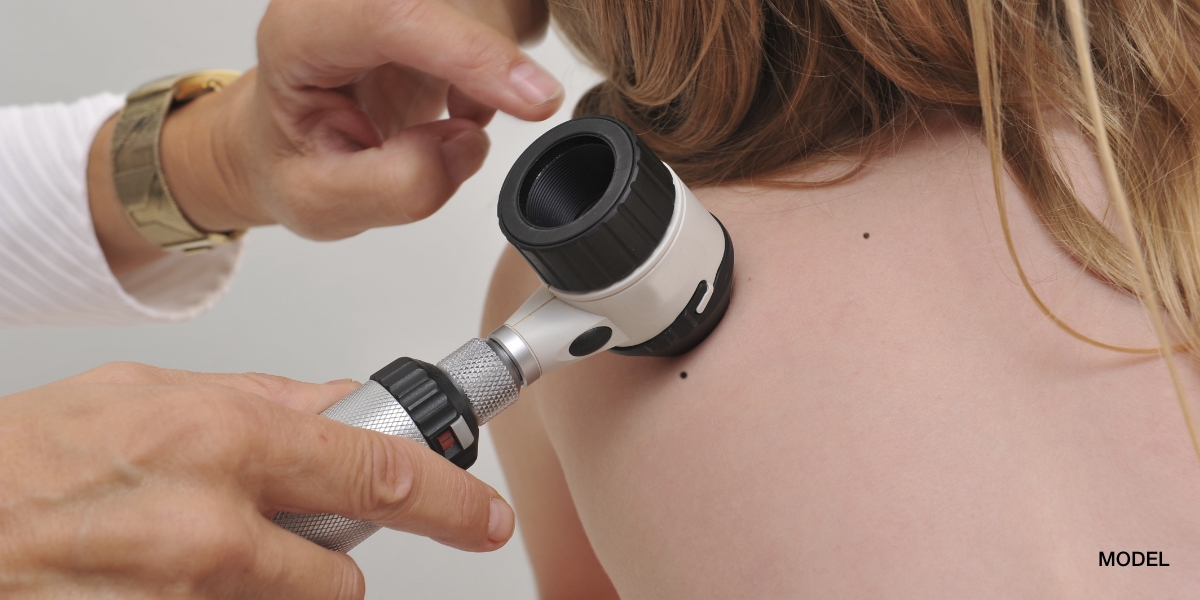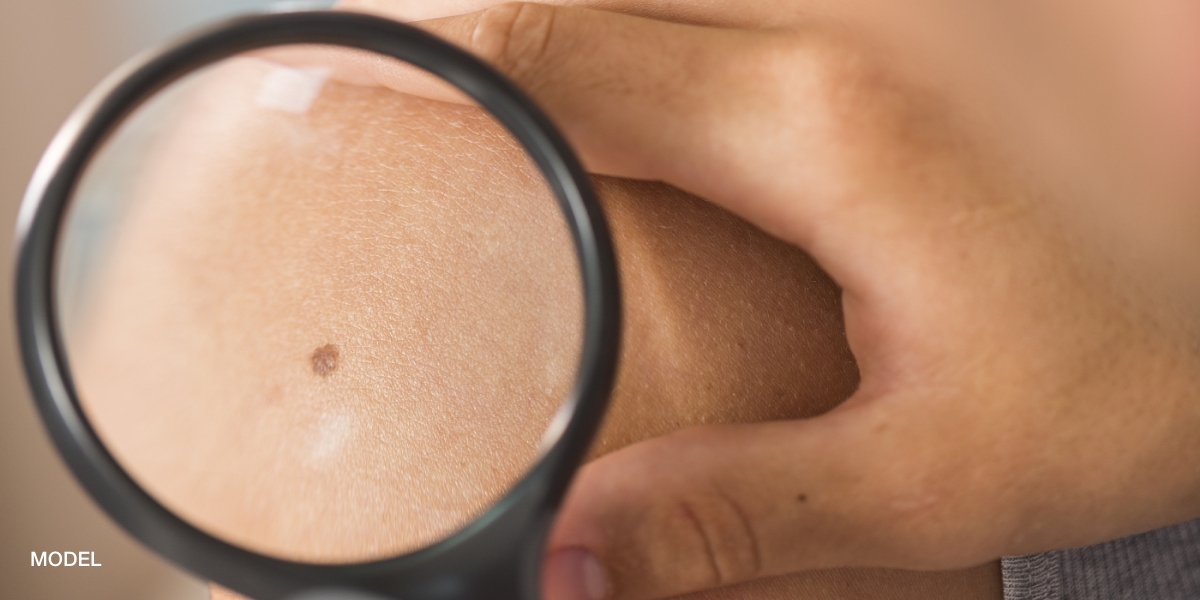Orolabial Herpes (Cold Sores) is a very common dermatological condition, which I see routinely in both my The Woodlands dermatology and Conroe dermatology offices. Orolabial herpes is most commonly caused by HSV-1, whereas genital herpes is usually due to HSV-2. HSV-1 has a predilection for the trigeminal nerve ganglion, where it resides for a patient’s entire life once infected. The trigeminal ganglion innervates the face so orolabial herpes can manifest in the oropharyngeal and ocular mucosa. Most patients acquire HSV-1 in childhood due to kissing by relatives with HSV-1 or through sharing drinking glasses. Over 80% of the population is infected with HSV-1 by adulthood, although only 30% ever manifests signs and symptoms of the disease. The first episode of orolabial herpes is almost always the most severe as patients may experience systemic flu like symptoms. The lesions can affect the lip, ginigiva, palate and oropharynx. The lesions begin as blisters that quickly rupture and form ulcers that can last from 1 to 3 weeks. Many triggers can cause recurrences such as stress, UV exposure, and perioral surgical procedures. Patients with orolabial herpes can transmit the virus to healthcare workers, particularly dentists, in the form of herpetic whitlow in which they acquire herpes on their fingers. Diagnosis of orolabial herpes is usually based on clinical experience but a Tzanck smear or HSV-1 serologies can be obtained. Treatment with topical antivirals is not very effective, but systemic antivirals such as Valtrex do offer benefit when taken early on when a patient notices the first signs (prodrome) of orolabial herpes. Typically, patients can take 500mg of Valtrex twice a day for three days when they first notice the prodrome such as pain or tingling in the mouth. Unfortunately, it is possible to transmit HSV-1 to others even when one is not symptomatic.
April 6, 2013




